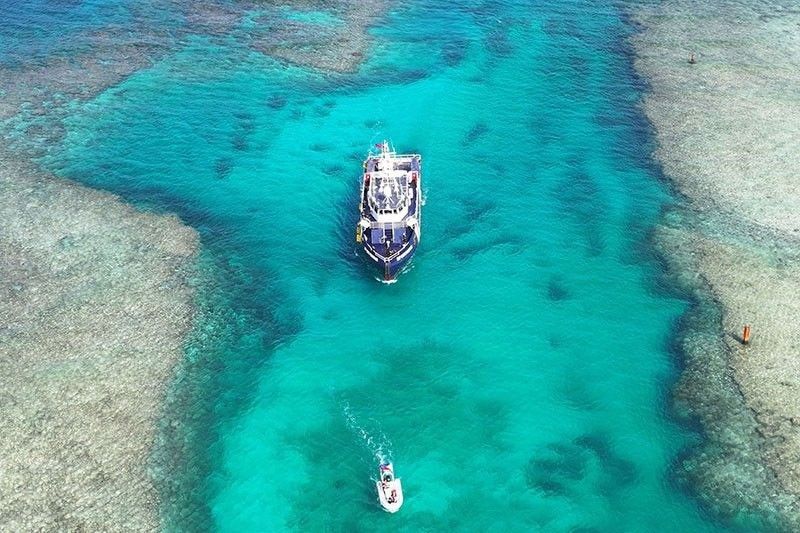South China Sea has most excessive maritime claims challenged by United States

MANILA, Philippines — Excessive maritime claims advanced by China and two other claimants in the South China Sea (SCS) were the most operationally challenged by United States forces under the Freedom of Navigation program, according to the latest annual US Department of Defense FON report.
The defense department released Thursday its annual FON Report for fiscal year 2023. During the period from Oct. 1, 2022 through Sept. 30, 2023, US forces operationally challenged 29 different excessive maritime claims advanced by 17 different claimants throughout the world.
Excessive maritime claims are unlawful attempts by coastal states to restrict the rights and freedoms of navigation and overflight and other lawful uses of the sea.
These are inconsistent with international law as reflected in the 1982 United Nations Convention on the Law of the Sea (UNCLOS). They include a variety of restrictions on the exercise of navigation and overflight rights and other freedoms and lawful uses of the seas.
“If left unchallenged, excessive maritime claims could permanently infringe upon the freedom of the seas enjoyed by all nations,” the department said.
The Annual Freedom of Navigation Report 2023 identified excessive maritime claims in the South China Sea by China, Vietnam and Taiwan that were challenged by US FON Program.
Challenged were China’s straight baselines not drawn in conformance with international law or the Chinese government’s Declaration on the Baselines of the Territorial Sea; requiring prior approval for military survey activities in the exclusive economic zone; restrictions on foreign aircraft flying through an Air Defense Identification Zone without the intent to enter national airspace; requiring prior permission for innocent passage of foreign military ships through the territorial sea; and Beijing’s claims of “historic rights” in the South China Sea.
Also challenged were Taiwan requiring prior notice for foreign military vessels to conduct innocent passage in the territorial sea and Vietnam’s straight baselines that do not conform with UNCLOS and imposing prior notification for foreign warships to enter the territorial sea.
The US rejected unlawful and sweeping maritime claims in the South China Sea that pose a serious threat to the freedom of the seas, including the freedoms of navigation and overflight, free trade and unimpeded commerce, and freedom of economic opportunity for South China Sea littoral nations.
According to the US Navy, China, Vietnam and Taiwan “purport to require either permission or advance notification before a foreign military vessel engages in ‘innocent passage’ through the territorial sea.”
US forces also challenged excessive maritime claims by Cambodia in the Gulf of Thailand; Colombia (Caribbean Sea), Croatia (Adriatic Sea); Dominican Republic; Iran (Strait of Hormuz, Persian Gulf and Gulf of Oman); Japan (vicinity of Tsushima Strait and Senkaku Islands); Latvia (Baltic Sea); Maldives; Malta (Mediterranean Sea); Oman (Strait of Hormuz); Russia (Bering Strait); Thailand (Andaman Sea); United Arab Emirates (Persian Gulf and Gulf of Oman), and Yemen (Bab el-Mandep Strait).
“Unlawful and sweeping excessive maritime claims – or incoherent legal theories or maritime entitlement – pose a threat to the legal foundation of the rules-based international order,” according to the report.
The defense department said the US is committed to confronting this threat by challenging excessive maritime claims.
“As long as some countries continue to assert limits on maritime rights and freedoms that exceed coastal state authorities nested under customary international law, the United States will continue to challenge such unlawful claim,” it said.
‘Only Philippines can create island in Escoda’
The Philippines is the only country that can create an artificial island on Escoda Shoal, an island within the country’s exclusive economic zone (EEZ), according to former Supreme Court associate justice Antonio Carpio on Saturday.
“(Escoda Shoal) is part of the 200 nautical mile EEZ of the Philippines. As such, only the Philippines can create an artificial island on Escoda Shoal,” Carpio told The STAR in a text message.
“Any structure or artificial island erected by China on Escoda Shoal is illegal under international law,” he added.
In such instances that China constructs an artificial island or any structure in Escoda Shoal, Carpio said the Philippines can seek legal options, such as filing a case for damage to the marine environment for the destruction of the coral reef.
“The case will be filed with an UNCLOS tribunal,” he added.
Carpio also pointed out that the purpose of China in creating an artificial island is to create a military outpost that would “prevent the Philippines from getting the gas in Reed Bank and in other nearby areas.” — Nillicent Bautista
- Latest
- Trending






























